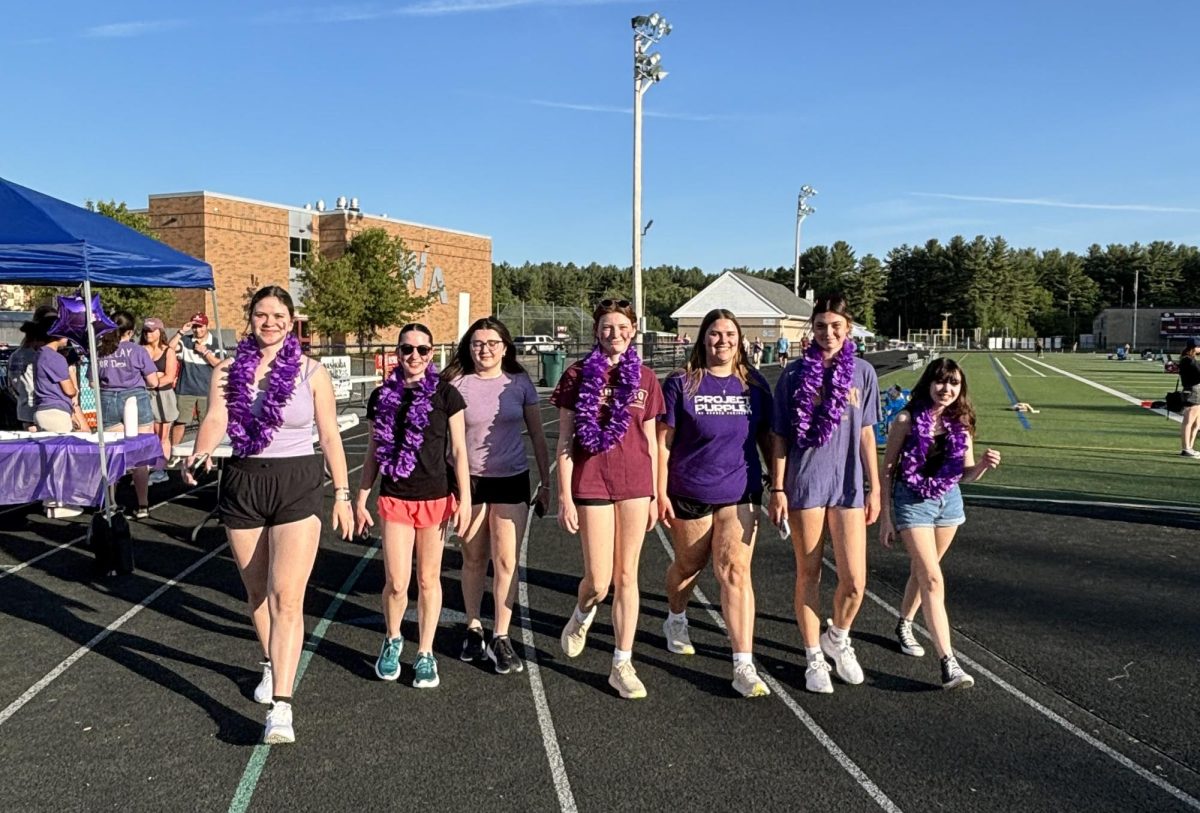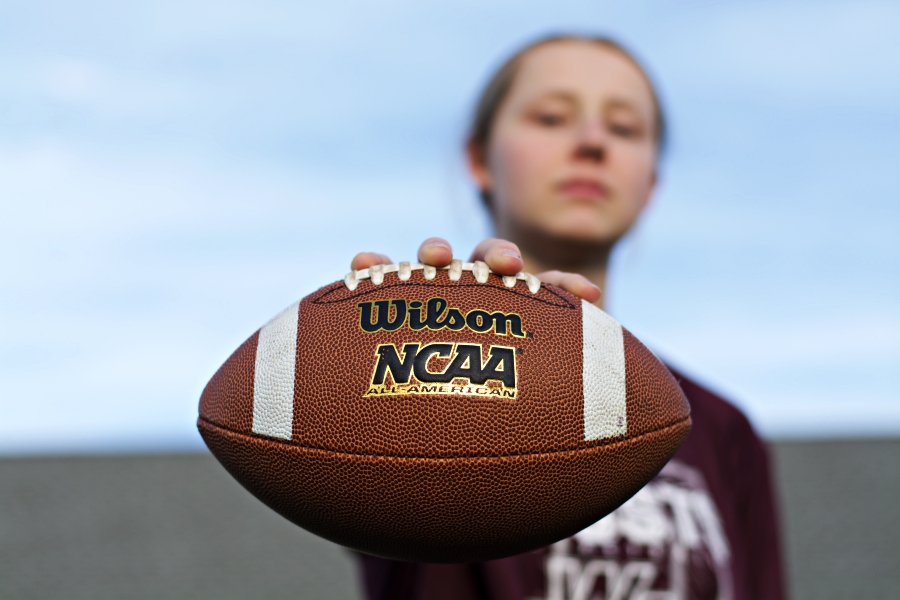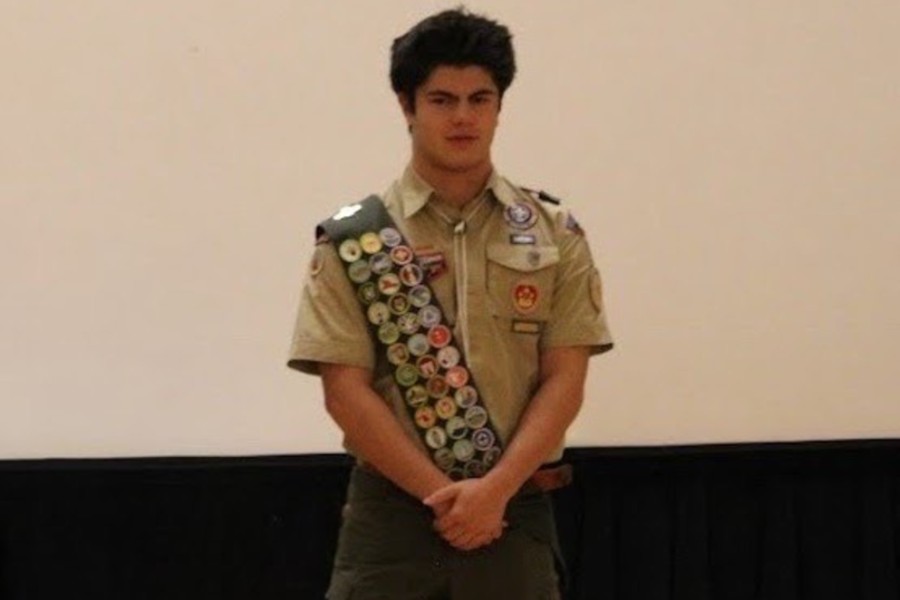Many students go to basketball games or wrestling matches to watch and critique as spectators of the event. Yet, one cannot help but wonder about the hours and effort a team puts in before the game to reach their peak performance and play their best.
With WA’s diverse selection of sports, each lends itself to different experiences. Whether it be swimming, wrestling, or basketball, the mental, physical, and time commitment of a student-athlete is often a key factor in excelling.
At WA, most sports teams meet after school for 2-3 hour practices with up to two games each week. Although this varies from sport to sport, most require a considerable time commitment, often starting from a young age.
For junior Varsity Soccer player Martha Khusid, her soccer journey began as early as when she was four years old. Over the years, Khusid has played on several club teams and has been on the WA Soccer team for the last three years, along with the Nordic Ski team during the winter season. According to Khusid, her commitment to the soccer team culminates to a total of two hours each day with games throughout the week, including transportation, warm-up, and the game itself.
“I think students’ time commitment is really what helps our team succeed,” Khusid said. “We have a common goal that everyone is putting a lot of hard work into, and time together is super valuable to the team because the season is pretty short. So, when we all have time as a team [during practices], we have to think about how we are going to be effective about using this time.”
When it comes to Nordic Ski, the team also practices every day, along with longer weekend practices. According to Khusid, race days, which are during the school week, can last up to seven hours, starting at 2:15.
Likewise, for senior Varsity Swim captain Estella Cui, swimming was her sport of choice from a young age, ultimately evolving into something she has stuck with for the past years. The swim team practices five days a week at WestFit for one-and-a-half hours, with meets every week that can last up to an entire day.
“I’ve been doing swim since I was three so it’s staying true to myself,” Cui said. “It’s always been a part of who I am so it’s good to have a passion behind what you do.”
Families are also often required to invest a significant time commitment to a sport, whether that takes the form of outside of practice training, transportation, or helping with general team events, such as spags [spaghetti dinner nights before game days].
“When you do a sport, it’s kind of a whole family commitment,” Khusid said. “They are going to have to come to games, drive out to games, and pick you up from far away games and events. They have to go out of their ways sometimes to make it work for me.”
In addition, the heavy time commitment of a sport often leaves students with a struggle to find a balance between managing their school work and athletic ambitions.
“Race days I think are the worst for me commitment-wise because when you get back [home], it’s just so late,” Khusid said. “Whenever we’re mid-season, which is the most competitive part and race heavy, it always feels like I get more worried about my grades.”
According to Varsity Girls’ Basketball head coach Russell Coward, people who play sports generally do better because they are under more pressure to be more efficient.
“Most of the athletes who have been in a varsity sport understand what they have to do to keep their grades up,” Coward said. “People who play sports generally do better because they’re forced to be organized.”
With the self-sufficiency of athletes, although getting home later in the day, typically leads to less time to work on homework and later sleeping habits, many athletes have found ways to effectively complete their work earlier.
“I try to get as much homework done as I can in classes,” Boys’ Swim captain Chris Fahlman said. “Then if I can do it [before or after practice], I will take the opportunity to do it there as well. So, I can go to practice, go home and rest, and then go to my club team practice.”
With consistent practices and lengthened game days, many student-athletes have also found the struggles that come along with the physically and mentally demanding nature of their sports.
“You have to be really persistent,” Cui said. “It’s very easy to give up in a sport like swimming, because you’re staring at a blank line for an hour-and-a-half straight.”
All sports are different in terms of the motivation that drives students to join and show up everyday for practices and games. What most students have in common is challenging themselves to get better and work hard, even when it becomes demanding.
Wrestling senior captain Shane Clark says that in wrestling, many factors of the sport make it physically and mentally challenging, but that it is expected when they sign up to play.
“It’s harder than hitting a baseball with some of the stuff that you do because it’s so much technique. It’s so much form,” Clark said. “It takes so much time to perfect, to become quick and become good, where it’s just mentally tough.”
According to Clark, even though athletes struggle with outside issues, they still give their all when engaging in a sport.
“Wrestling is a new type of endurance, you may be able to play a football game or run 20 miles, but wrestling uses every muscle in your body and a lot of people aren’t used to that, which is why wrestling is so exhausting,” Clark said. “Coming every day to practice, whether you’ve got the sniffles, you’re stressed, or whatever you are dealing with, requires mental toughness.”
Every athlete has different motivations that keep them working towards a goal in their careers. For some, it might be that they grew up doing it and stay persistent because they are attached, or that they show up because they made the commitment. But even with a personal motivation, there’s an extra push needed: the guidance from a coach and the feedback and criticism they provide to shape a student-athlete for the future.
Coward explained that a part of having mental toughness in a sport is being able to endure criticism and use that motivation to get better.
“With varsity, you have to be tough physically and you have to be tough mentally. Now, that doesn’t mean that I just like to yell for the sake of yelling,” Coward said. “But especially with a younger group this year, there’s a lot more teaching. Unfortunately, the best way to teach people is to show them the mistakes that they’ve made.”
Another factor in athletic commitment is often the money required for playing the sport. Whether it be an off-season club to improve on skills or the athletic fee and gear costs, almost all sports require athletes to invest financially. When athletes become invested in a sport and want to further their career, fewer opportunities are available without a price tag.
Coward explains that there is a main difference between varsity athletes and junior-varsity athletes: most varsity athletes play on club teams or have some sort of practice in the offseason to continue to get better.
“You no longer have the myth of the kid who grows up on the farm or kid grows up in the middle of the city and just plays basketball all the time and becomes this fantastic college athlete,” Coward said. “A high percentage of kids, the only way they get to college and play sports is if they invest early on.”
Special Education teacher and Wrestling head coach Bruce Rich also added that putting in money to play in the off season is how athletes come back well prepared for the season, and can then contribute to the teams overall outcome during matches and games.
“The reason why we’re not very good right now is because we didn’t have a lot of kids wrestling in their youth,” Rich said. “We started the season being very raw because of this, but by the end of January to the beginning of February we will be much better.”
With WA’s financial aid process, people who would like to excel and play in a sport but don’t have the financial status to do so are still able to play.
Principal Dan Twomey specified that anyone who is signed up for free and reduced lunch at the beginning of the school year also gets fees waived for any WA club or activity they participate in. The school budgets for this by raising the fee for the club or sport.
With all said, although being a student-athlete is hard and takes a major amount of commitment in all aspects, many athletes love doing it because of the community that surrounds them.
“School [sports] are definitely fun,” Fahlman said. “It’s just fun because you’re with these kids at school and you see them at practices and you’re with them all the time. You create a good bond.”









